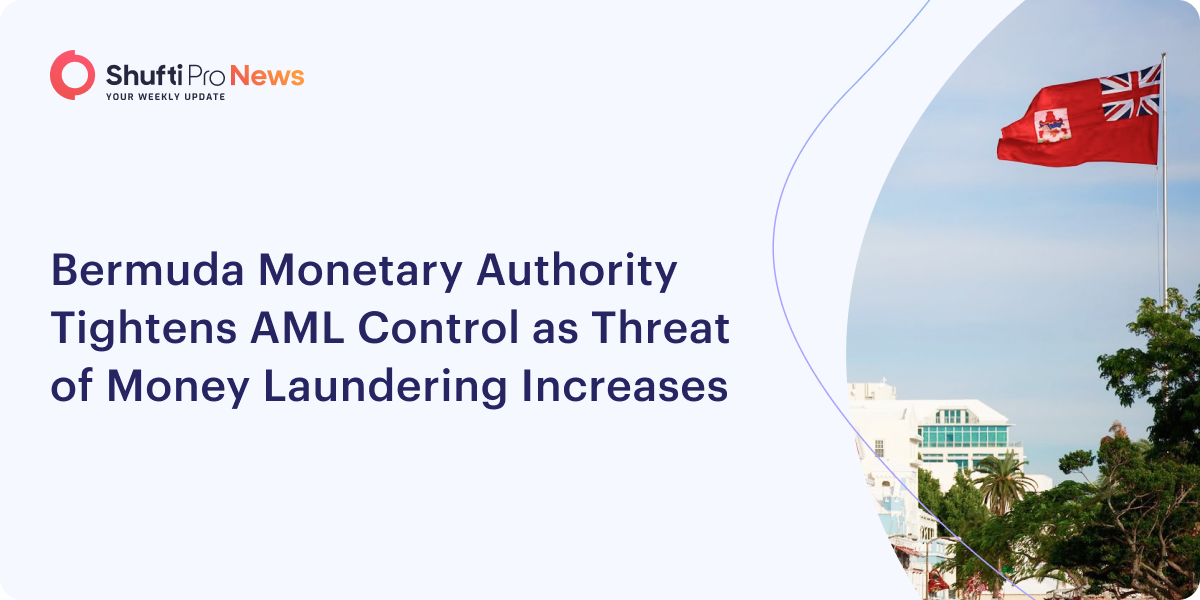Bermuda Monetary Authority Tightens AML Control as Threat of Money Laundering Increases

Bermuda Island was rated high in the 2020 Money Laundering and Terrorist Financing Risk Assessment due to a more comprehensive understanding of the threat analysis. The data and information were analysed more thoroughly, improving the threat profile.
According to the National Anti-Money Laundering Committee’s latest report, Bermuda has a high level of money laundering threat. As a result of the Bermuda greater experience and expertise in the field of such assessments, the government’s report also reflected this. Bermuda is again considered to be at low risk of terrorist financing. Bermuda’s report stated that there was no evidence of terrorist financing occurring in any sector of the economy, domestically or abroad.
Overseas crimes such as fraud, corruption, bribery, insider trading, and market manipulation presented Bermuda Island with the greatest threat of money laundering. Financial institutions on the island may be impacted by money laundering resulting from these foreign crimes and may be unable to provide services to their overseas clients.
Money laundering within Bermuda continues to be threatened by domestic drug trafficking and other emerging threats, including cyber-based extortion targeting Bermuda residents abroad. The Island remains significantly exposed to money laundering threats originating from foreign predicate offences.
Banks and credit unions ranked medium-high, followed by corporate services, securities, and long-term (life) insurance. Among the sectors rated as medium are gambling, real estate, money services, and precious metal and gemstone dealers. Bermuda Stock Exchange, general commercial operations, reinsurance, and high-value goods were moderately risky.
For the first time in Bermuda, the lending sector was included in the risk assessment due to the introduction of the AML/CTF regime in 2018. According to the report, this sector has a medium-low risk rating because it primarily engages in domestic activities, is relatively small, and mainly focuses on domestic activities. Among the sectors rated as low risk, accounting was one of them. The casino sector was also placed at medium-low risk since no casino operator exists on Bermuda yet. A casino licence will be issued once this preliminary assessment is complete.
Due to potential money laundering implications for the financial services industry, Bermuda faces high ML threats. According to the report, Bermuda must strengthen its AML controls despite these threats. All relevant sectors, except banking and NPOs, were rated low to medium for terrorist financing. However, it is important to note that Bermuda authorities maintain a strong ATF regime, recognising that no jurisdiction is immune from terrorist threats. According to the report, relevant AML/ATF controls are being improved across all financial sectors by the 2016 national strategy and action plan.
The results of previous assessments have led to changes in legislation, institutions, and operations. Following the Cabinet’s approval of the action plan, all agency action plans must be aligned according to the plan. The report stated that the results of this risk assessment could be used to modify AML/ATF activities in both government institutions and the private sector.
A significant portion of law enforcement and intelligence agency efforts should be directed toward preventing financial crimes associated with the financial services industry for compliance purposes, and supervisors should monitor sectors and entities closely, especially those whose inherent vulnerabilities are the greatest. NRA’s findings for 2020 can help private sector firms assess ML/TF risks and identify areas that need attention. Thus, Bermuda should remain at the forefront of the fight against terrorist financing and money laundering. This will be accomplished through compliance with internationally recognised standards, diligence, and hard work.
Suggested Read:

 Explore Now
Explore Now













